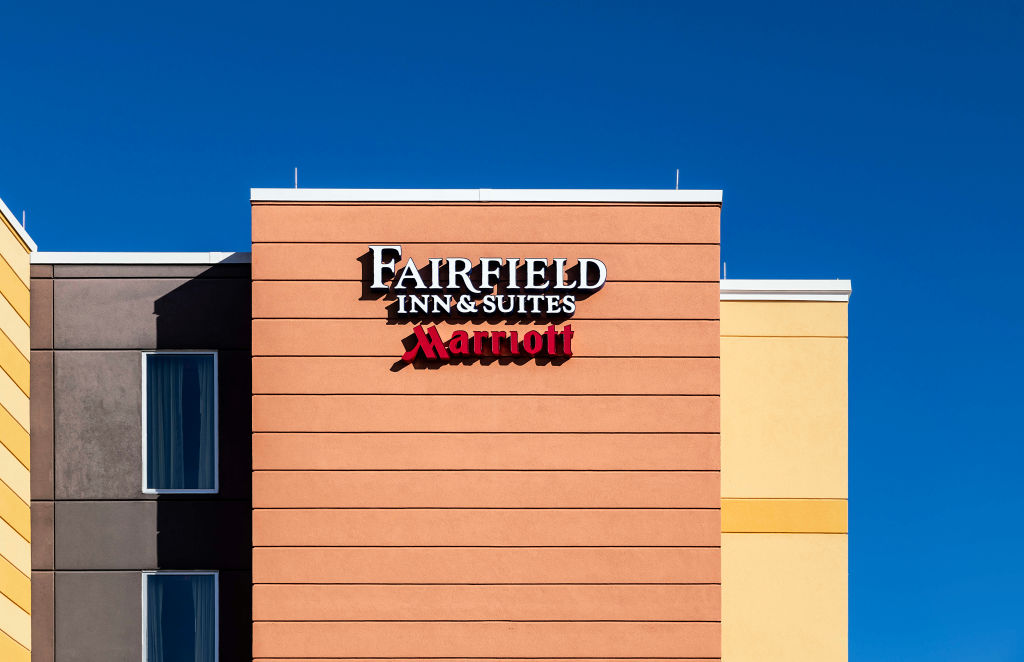Lawsuit Filed After Grandfather Boiled To Death In Shower
Family Files Lawsuit Against Marriott International After Grandfather Boiled To Death In Shower

When 72-year-old Terril Johnson Sr. checked into the Fairfield Inn & Suites by Marriott near the San Jose Airport this past May, he was simply there to celebrate a proud family milestone. But instead, what should have been a joyous occasion became an unspeakable tragedy.
According to a wrongful death lawsuit filed by his family, Mr. Johnson was “effectively boiled alive” after reportedly being exposed to scalding water that reached temperatures between 134 and 136 degrees Fahrenheit, well above the legal limit of 120 degrees.
“The water was so dangerously hot they could not initially lift him from the tub,” the suit states.
The LA Times reports that Johnson was found unconscious and partially submerged in the scalding bath water by his grandson, Deshaun, who went to check on him. The family stated that the water was so hot that they were unable to “pull him out without burning themselves.” They also reportedly desperately attempted to render CPR at the scene, but, as recounted in the lawsuit, they “were forced to watch in horror as his skin peeled away from his body.”
The Santa Clara County medical examiner confirmed that Johnson suffered burns on over 33% of his body, adding that the cause of death has been identified as severe scalding. The family filed a lawsuit earlier this month, accusing the hotel and its management of gross negligence and “failure to meet even basic safety obligations.”
“This was not a freak accident,” the suit alleges. “It was the direct result of Defendant’s gross negligence and failure to meet even basic safety obligations.”
But this case is about more than a single horrifying accident—it’s about a systemic failure of corporate accountability. A hotel’s hot water system doesn’t spontaneously become lethal overnight. It takes continued negligence and overlooked safety precautions over time. These are not small mistakes, but actual violations of public trust and safety.
According to the California Plumbing Code, water temperatures for individual showers cannot exceed 120°F because at that temperature, a person can tolerate water for several minutes without injury. But at 136°F, the alleged temperature range of Mr. Johnson’s hotel room, the human body will sustain third-degree burns in seconds. The difference between life and death is a literal 16 degrees—something hotel engineers, managers, and owners are required by law to monitor and maintain for the customer’s safety.
The allegations that Marriott’s Fairfield Inn allowed a system capable of delivering water hot enough to “boil a person alive” at the expense of a grandfather who was simply trying to celebrate a family milestone is more than an “oversight;” it’s an indictment of an industry culture that too often places cost-cutting and convenience over human life while raising prices — in most cases with no extra benefits or efforts.
Routine inspections and maintenance protocols are inexpensive compared to the immeasurable costs resulting from a preventable death.
This tragedy underscores the troubling pattern seen across corporate America of the failure to prioritize accountability until tragedy strikes. Too many companies operate on a calculus of liability, quietly betting that paying out the occasional lawsuit, wrapped in a spectacular marketing campaign, is cheaper than maintaining necessary safety standards. It’s a mindset that not only endangers lives but also undermines public trust.
When an elderly man can step into a hotel shower and doesn’t come out alive, something is profoundly broken in how we regulate, inspect, and enforce safety in the hospitality industry.
The Johnson family’s legal battle is about justice, but it’s also about change. It’s a call to every corporation, every hotel chain, and every regulatory agency to treat safety as a priority, not an option. Because no one should have to fear for their life while taking a shower in a hotel room.
As of press time, Marriott has not issued a public response.
SEE ALSO:
Why DEI Matters: Black-Sounding Name Discrimination, Lawsuit Claims








